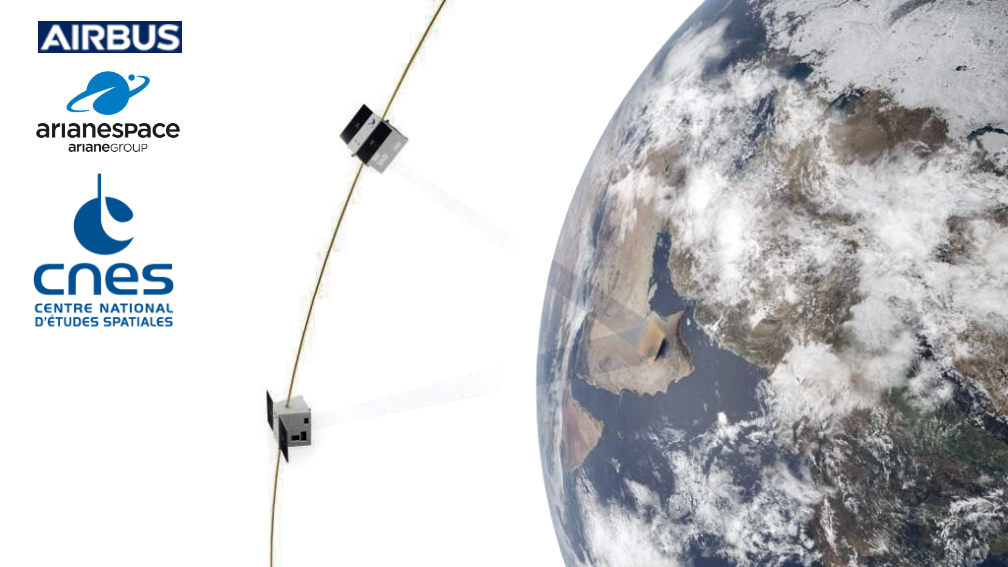
Arianespace CEO Stéphane Israël and Philippe Pham, Senior Vice President – Head of Earth Observation, Navigation and Science, at Airbus, have announced that the two companies have signed the launch contract for the CO3D constellation of Earth Observation (EO) smallsats developed with the French CNES space agency.
Weighing approximately 300 kg. each, these satellites will be launched together as co-passengers on a single flight and deployed into polar orbit at an altitude of 500 km. The mission is scheduled for 2023 from the Guiana Space Center, Europe’s Spaceport in French Guiana, using a Vega C launch vehicle.
The CO3D constellation is comprised of four identical satellites, built on an all-electric platform developed by Airbus. As a result of the CNES and Airbus partnership, CO3D will deliver stereoscopic images of the Earth at a resolution of 50 cm, with a high revisit rate. This data will be fed into an Airbus digital processing system, which will integrate advanced algorithms from CNES to quickly produce ultra-precise 3D maps of our planet’s surface.
Vega is the new-generation, highly versatile member of Arianespace’s launcher family, alongside the heavy-lift Ariane 5 and medium-lift Soyuz, deployed from the Guiana Space Center. Vega is a European Space Agency (ESA) program, with Colleferro, Italy-based, Avio as the industrial prime contractor.
The performance and versatility of Vega allows Arianespace to provide the best possible launch solutions in LEO for small- and medium-size payloads, spanning a wide range of applications (EO, science, education, defense).
With Vega C, Arianespace will offer increased performance and volume under the payload fairing for its passengers. The inaugural launch of Vega C is scheduled for 2021.
Following the signature of this contract, Stéphane Israël said, “With several months to go before the first Vega C launch, this new-generation European light-lift launcher has reaffirmed its ability to meet users’ innovative needs in low orbit, especially with the ability to carry multiple payloads – benefitting from the improved performance. For Arianespace, this is a further sign of the renewed confidence in the Vega system by our long-time partners of Airbus and CNES.”
